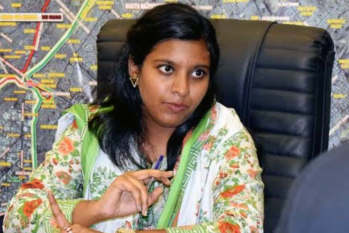
German parliamentarians seek to ban Christians and other right-to-life advocates from standing near abortion clinics under a draft law proceeding through the Bundestag.
If passed, the law would ban behavior seen as “confusing” or “disturbing” within 100 meters of abortion clinics, and violators would face fines of up to 5,000 euros (USD 5,042).
Both the parliamentary bill wording and the planned zone boundaries seem vague, according to legal advocacy group Alliance Defending Freedom (ADF) International.
“No matter one’s opinion on abortion, everyone suffers when we start to censor the right to speak freely, pray, or engage in consensual conversations,” Dr. Felix Böllmann, director of advocacy for ADF International, said in a press statement.
The right to peacefully pray is protected by international and national law, he said.
“The federal government wants to ban something but doesn’t know what or why,” he said. “This law doesn’t ban ‘confusion,’ it creates more of it – both for citizens trying to understand the law and police officers who will have to enforce any vague new prohibitions.”
The German government cannot admit to not having any “concrete numerical findings” about previous recorded hindrance or harassment incidents near the facilities, according to ADF International.
Federal Minister Lisa Paus confirmed the proposed punishment for zone breakers.
“If you harass people with expressions of opinion that they clearly don’t want to hear, then this will become an offense punishable with a fine of up to 5,000 euros,” she said.
The Federal Council is discussing the draft bill, and it may yet be amended. It is expected the bill will come to a vote by Bundestag members.
The planned measure echoes buffer zones set up in the United Kingdom that led to a Christian woman’s arrest by police after she silently prayed near an abortion clinic in December 2022.
Isabel Vaughan-Spruce, a charity worker who supports pregnant women, went viral on a YouTube video after three police officers received reports that she may have prayed silently in her mind while standing near the BPAS Robert Clinic in Kings Norton, Birmingham. The facility was closed at the time.
She displayed no protest signs or information and did not engage with anyone, according to ADF International. The abortion facility was under a local Public Spaces Protection Order (PSPO) since November 2022, prohibiting anyone from engaging “in any act of approval or disapproval or attempted act of approval or disapproval” about abortion, including “verbal or written means, prayer or counseling.”
Police charged Vaughan-Spruce with “protesting and engaging in an act [prayer] that is intimidating to service users.” Birmingham Magistrates’ Court acquitted her in February 2023 due to a lack of evidence.
She returned to the clinic to pray in March, but six police officers arrested her again. Police imposed bail conditions, prohibiting her from visiting areas even beyond abortion clinic buffer zones. These conditions were lessened in April, and charges were eventually dropped.
“Isabel’s experience should be deeply concerning to all those who believe that our hard-fought fundamental rights are worth protecting,” said Jeremiah Igunnubole, legal counsel for ADF UK. “It is truly astonishing that the law has granted local authorities such wide and unaccountable discretion, that now even thoughts deemed ‘wrong’ can lead to a humiliating arrest and a criminal charge.”
Vaughan-Spruce is the director of the UK March for Life and has supported women with unwanted pregnancies for 20 years.
In 2022, ADF International and other civil liberty groups warned that U.K. police officers would erode freedoms after U.K. parliamentarians passed the Police, Crime, Sentencing and Courts Act 2022.
The U. K. Parliament last year criminalized all forms of “influence” near abortion clinics in England and Wales on March 7, according to ADF International.
At the same time, U.K. parliamentarians are taking up legislation that would decriminalize abortions after 24 weeks of pregnancy. Labour MP Diana Johnson put forward the amendment to the U.K. Criminal Justice Act. The parliamentary decision will be determined by a “free vote” as it is a matter of conscience, freeing MPs from following the dictates of their parties.
Johnson pointed out to The Guardian, a left-wing U.K. newspaper, that similar measures were passed for Northern Ireland in 2020.
“I would find it very odd if Parliament decided not to do this for England and Wales, as we’ve already done it and the sky has not fallen in,” Johnson told the newspaper. “Other countries have done it – Australia, New Zealand, Canada and the Republic of Ireland – so it’s not the terrible thing that some people seem to be making out it is.”
Johnson said people may favor the legislation in light of a surge in investigations of illegal abortions and the number of women brought to court, along with abortion providers saying they’ve been asked 50 times in the last 18 months for medical records of women.
“Women who have gone through stillbirths are finding themselves under investigation,” she reportedly said. “And this very small group of women who do procure their own abortion late on are often in the most awful circumstances – women who are the victims of trafficking or are very young or in an abusive relationship. I’m not sure we’d think sending women through the courts is the way to deal with this.”
A poll by right-wing U.K. newspaper The Times found that 55 percent of MPs likely opposed the prosecution of women for terminating pregnancies after 24 weeks. Some 23 percent remained in favor, and the rest were unsure. Current law can impose life imprisonment under the Offences Against the Person Act 1861.





